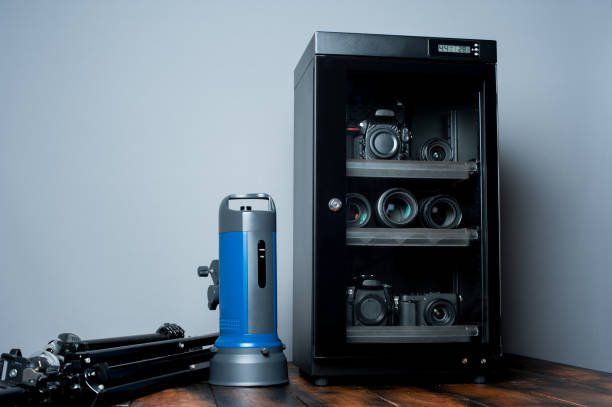The workspace has evolved from being purely functional to becoming an extension of identity, efficiency, and comfort. The desk, often considered the centerpiece of a professional or home office, plays a vital role in shaping how people work. A thoughtfully designed desk is not only practical but also reflects the personality and habits of the person using it.
This is why a custom desk is so valuable. Unlike mass-produced options, it can be tailored to match specific needs, whether that means maximizing space, enhancing ergonomics, or aligning with a brand’s aesthetic. Choosing the right type of desk begins with understanding your work style and the available design options.
The Importance of Choosing the Right Desk
A desk is more than a surface; it is a daily tool that influences productivity, comfort, and creativity. The wrong desk can lead to clutter, discomfort, or wasted space, while the right one provides organization and motivation. By exploring different types of desks, individuals and businesses can align their furniture with the way they work best.
Selecting a custom option allows flexibility in design, material, and functionality. This ensures that every choice, from dimensions to finishes, directly serves the end user’s requirements.
Popular Types of Custom Desks
Executive Desks
Executive desks are large, often rectangular pieces designed to command presence. They typically include ample storage with drawers, cabinets, and integrated cable management. Executive desks suit professionals who need space for paperwork, technology, and meetings in a single location. Their design communicates authority and sophistication, making them ideal for leadership roles.
Standing Desks
Standing desks have grown popular for their health benefits. They allow users to alternate between sitting and standing, reducing the risks of prolonged sitting. Many feature adjustable heights, ensuring flexibility throughout the day. A custom standing desk can be built to fit the exact height of the user, offering both comfort and ergonomic alignment.
L-Shaped Desks
L-shaped desks provide two connected work surfaces, perfect for multitaskers. One side can hold a computer setup while the other supports paperwork or creative projects. They are particularly useful in corner spaces, optimizing layout without sacrificing surface area. For people who need separation between tasks, this design is highly effective.
U-Shaped Desks
U-shaped desks take the L-shaped concept further, offering three connected surfaces that surround the user. This design maximizes storage and workspace, making it ideal for professionals who juggle multiple roles. While larger in footprint, these desks are excellent for executive offices or creative studios where accessibility to different tools and documents is critical.
Floating Desks
Floating desks are mounted to the wall and save floor space. They are sleek, minimal, and particularly effective in small rooms or modern offices. These desks suit individuals who prioritize simplicity and prefer a clean, open floor layout. Despite their compact design, floating desks can be customized with shelves or compartments for additional storage.
Writing Desks
Writing desks are smaller, simple surfaces typically without extensive storage. They are best suited for light work, writing, or laptop use. Custom versions can include stylish finishes, hidden storage, or foldable designs for flexibility. These desks appeal to professionals who value minimalism and want a clutter-free workspace.
Adjustable Modular Desks
Modular desks are built with components that can be rearranged or expanded. This adaptability allows users to adjust their workspace as their needs evolve. A modular setup can grow with a company, making it a cost-effective investment. For individuals, it allows for creativity in organizing and designing the space around their workflow.
Collaborative Desks
Collaborative desks are designed for teams rather than individuals. These large surfaces accommodate multiple people working together on projects. They are popular in creative studios and coworking spaces, where brainstorming and teamwork are frequent. A custom version ensures the desk fits the specific number of users and integrates with shared technology.
Factors to Consider When Choosing a Custom Desk
Selecting the right desk requires more than choosing a design. Several factors influence whether a desk enhances productivity or becomes an obstacle.
- Space availability
The dimensions of your office or room dictate what type of desk will fit. Measuring space before customization ensures the desk does not overwhelm or underutilize the room. - Work habits
Someone who spends hours on a computer requires ergonomic solutions, while a designer may prioritize surface space. Aligning desk features with daily tasks ensures functionality. - Storage needs
Consider whether you need drawers, cabinets, or open shelves. Ample storage prevents clutter and keeps essential tools within easy reach. - Aesthetic preference
A desk should complement the overall theme of the workspace. From modern minimalist styles to classic wooden designs, aesthetics play a role in how motivating the environment feels. - Budget
Customization varies in cost depending on material, size, and complexity. Setting a clear budget helps prioritize essential features while avoiding unnecessary expenses.
Each of these factors guides decision-making to ensure the final desk supports both function and style.
The Role of Materials in Custom Desk Design
Materials influence both appearance and durability.
- Wood offers timeless appeal and strength. Options such as oak, walnut, or maple provide warmth and elegance.
- Metal frames add durability and a modern touch, ideal for industrial-style workspaces.
- Glass surfaces create a sleek, contemporary look but require frequent maintenance.
- Composite materials such as laminate or engineered wood are cost-effective while offering diverse finishes.
Choosing the right material ensures longevity while matching the visual identity of the workspace.
How Custom Desks Support Productivity
A desk tailored to specific needs goes beyond aesthetics. It actively enhances how work gets done.
- Organization
Built-in storage solutions keep essentials accessible, reducing distractions. - Comfort
Ergonomic designs minimize physical strain, preventing fatigue and long-term injuries. - Efficiency
Designs that match workflow patterns streamline tasks, allowing users to focus on priorities. - Inspiration
A workspace that feels personal and intentional boosts motivation and creativity.
These factors combine to make a desk not just a piece of furniture, but a performance-enhancing tool.
Bullet Points: Matching Desk Types to Work Styles
- The multitasker benefits from an L-shaped or U-shaped desk, allowing seamless transitions between tasks.
- The minimalist thrives with a writing or floating desk, prioritizing clarity and simplicity.
- The executive leader finds value in a large executive desk that balances presence with functionality.
- The health-conscious worker requires a standing desk to support movement throughout the day.
- The collaborator makes use of large shared desks that encourage team interaction and idea exchange.
Each desk type supports different behaviors, showing why personalization matters in workspace design.
Conclusion
The right desk is more than furniture—it is a foundation for effective work. With so many types available, choosing the ideal option depends on aligning design with individual or organizational needs. A thoughtfully crafted custom desk provides not only function but also inspiration, blending comfort with productivity.
For businesses and professionals alike, pairing these desks with broader custom office furniture solutions ensures every aspect of the workspace contributes to success, creating environments where people can thrive.



